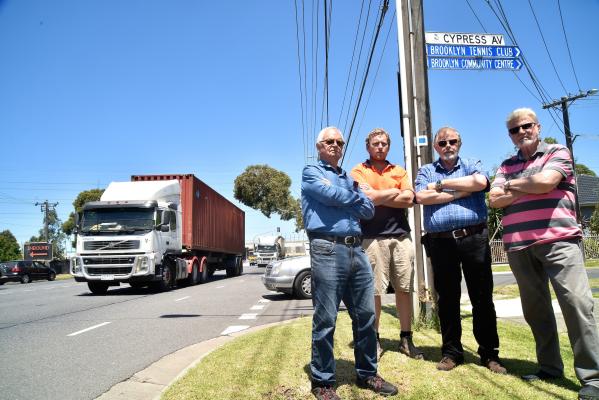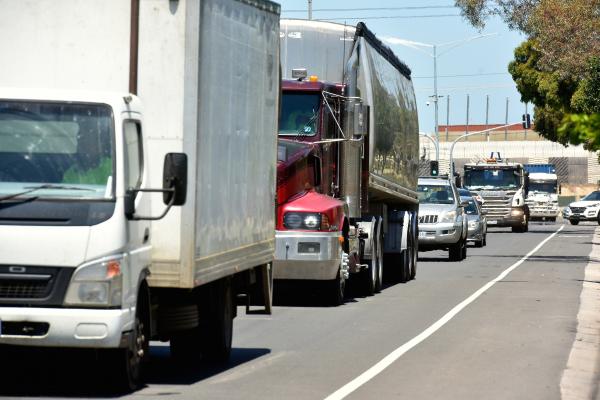
Goya Dmytryshchak
Brooklyn community groups have joined forces to demand an urgent upgrade of Millers Road and a future truck ban between Geelong Road and the West Gate Freeway at Brooklyn.
Brooklyn Residents Action Group and Don’t Destroy Millers Road have written a joint letter to relevant ministers, requesting that trucks be banned from entering or leaving the West Gate Freeway at Millers Road, Brooklyn, when the West Gate Tunnel is completed.
Studies conducted by Hobsons Bay council predict 11,800 trucks per day in Millers Road, Brooklyn, when the tunnel is built, the letter states.
It states Brooklyn residents will be enclosed between Geelong Road and the West Gate Freeway “and a totally congested Millers Road, all spewing out vehicle exhaust gases, with access in and out completely blocked“.
“Already there have been calls by some members of the Brooklyn community to commence a civil disobedience process to stop the trucks entering Millers Road to signal to the state government of the plight of this long-suffering community whose concerns have been disregarded,“ the letter states.
The letter also points to a report commissioned by the state government, which recommends trucks use Grieve Parade and Boundary Road.
The report, Air Pollution in Melbourne’s Inner West – Taking direct action to reduce our community’s exposure, recommends redirecting trucks “to protect the health and amenity of the Hobsons Bay community“.
A government spokesperson said the Department of Transport was attempting to balance the needs of residents and the trucking industry.
“The Andrews Labor Government is committed to working with the community and industry to reduce the impact of trucks in the inner west, while keeping freight moving,“ the spokesperson said.
“We are continuing to look at ways to efficiently balance growing freight needs and impacts on local communities.
“The Department of Transport is investigating options which will reduce the effects of freight movements through the inner west and deliver the best possible outcome for local residents and industry.
“Across the network, we’ve made roads safer and more efficient by improving safety for pedestrians, lowering speed limits and banning dirty trucks on some roads.“








